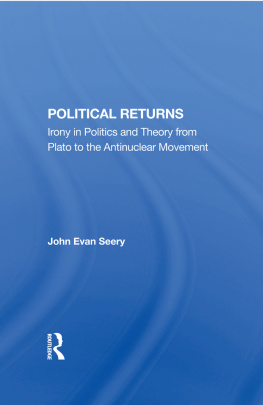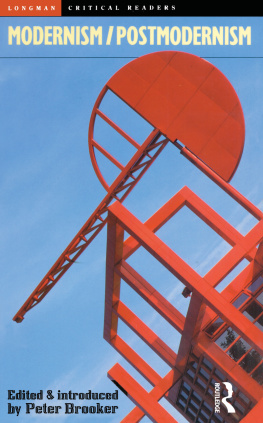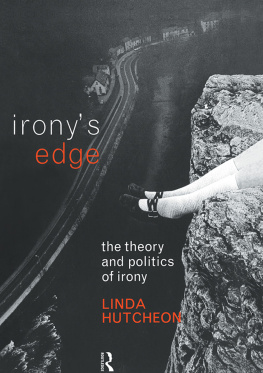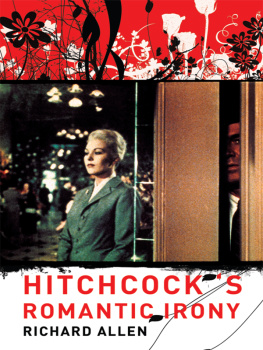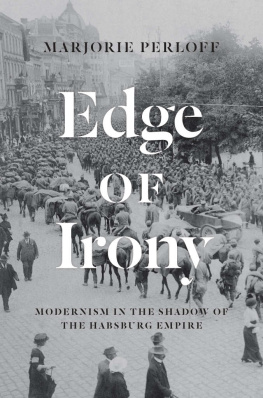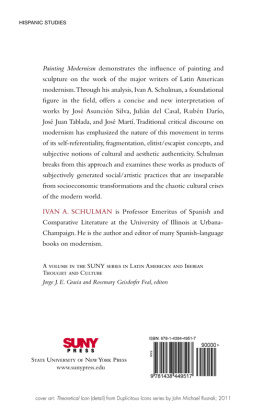IRONY AND THE DISCOURSE OF MODERNITY
Irony and the Discourse of Modernity
ERNST BEHLER

Copyright 1990 by the University of Washington Press
Printed in the United States of America
All rights reserved. No part of this publication may be reproduced or transmitted in any form or by any means, electronic or mechanical, including photocopy, recording, or any information storage or retrieval system, without permission in writing from the publisher.
Library of Congress Cataloging-in-Publication Data
Behler, Ernst, 1928
Irony and the discourse of modernity / Ernst Behler.
p. cm.
ISBN 0295969989 (alk. paper)
1. Irony in literature. 2. Modernism (Literature) 3. Postmodernism (Literature) I. Title.
PN56. I65B44 1990 | 90-11960 |
809 .918dc20 | CIP |
The paper used in this publication meets the minimum requirements of American National Standard for Information SciencesPermanence of Paper for Printed Library Materials, ANSI Z39.481984. 
Contents
Preface
This text was originally presented as the annual faculty lecture at the University of Washington in November 1986 and, upon invitation from the University of Washington Press, expanded to its present format. In spite of considerable additions to the lecture, however, the original line of thought and argumentation has been maintained. These additions are all of an illustrative, exemplifying nature and seek to develop particular points more fully than was possible within the limited scope of the lecture.
As is customary in the faculty lectures at the University of Washington, topics of ones own research serve as the occasion for formulating issues of a broader interest. In this particular case, I tried to explore the question of our own position in history, the status of our modernity, and our relation to the tradition, through that figure of speech and writing which has received the name of irony. Irony, of course, is not to be taken in any restricted literary meaning, but in that broad mode of saying it otherwise, of circumlocution, configuration, and indirect communication characteristic of todays humanistic and scientific discourses. This investigation quite naturally led to the names and themes discussed in this text, all of which I would like to link more closely with our contemporary concerns.
Whenever they were available I have used English translations for quotations from foreign sources, but have always checked the text against the original. When no appropriate translation was available, I have provided one myself.
ERNST BEHLER
Seattle, March 1989
Abbreviations
The following abbreviations are used in the text.
AMT | Charles de Saint-Evremond, On Ancient and Modern Tragedy, in The Works of M. de Saint-Evremond (London, 1928), available in Scott Elledge and Donald Schier, eds., The Continental Model (Ithaca: Cornell University Press, 1970), 12330. |
AWS | August Wilhelm Schlegel, Kritische Ausgabe seiner Vorlesungen, ed. Ernst Behler with the collaboration of Frank Jolles, 6 vols. (Paderborn-Mnchen: Schningh, 1989). |
BP | Blaise Pascal, Oeuvres compltes (Paris: Gallimard, 1956). |
CI | Sren Kierkegaard, The Concept of Irony with Constant Reference to Socrates, trans. Lee M. Capel (New York: Harper and Row, 1965). |
CIS | Richard Rorty, Contingency, Irony, and Solidarity (Cambridge: Cambridge University Press, 1989). |
CRF | Madame de Stal, Considrations sur la Rvolution franaise, ed. Jacques Godechot (Paris: Tallendier, 1983). |
D | Jacques Derrida, Diffrance, in Speech and Phenomena and Other Essays on Husserls Theory of Signs, trans. David B. Allison and Newton Garver (Evanston: Northwestern University Press, 1973), 12960. |
DAM | Bernard le Bouvier de Fontenelle, A Digression on the Ancients and the Moderns, in The Continental Model, ed. Scott Elledge and Donald Schier (Ithaca: Cornell University Press, 1970), 35870. |
DM | Jrgen Habermas, The Philosophical Discourse of Modernity: Twelve Lectures, trans. Frederick Lawrence (Cambridge: MIT Press, 1987). |
DP | John Dryden, An Essay of Dramatic Poetry, in Essays of John Dryden, ed. W. P. Ker (New York: Russell and Russell, 1961), vol. 1, 64126. |
E | Encyclopdie ou dictionnaire raisonn des Sciences, des Arts et des Mtiers, par une Socit de Gens de Lettres, 35 vols. and 3 vols. (Geneva: Pellet, 1777). |
EM | Jacques Derrida, The Ends of Man, in Margins of Philosophy, trans. Alan Bass (Chicago: The University of Chicago Press, 1982), 10936. |
FN | Friedrich Nietzsche, Kritische Studienausgabe, ed. Giorgio Colli and Mazzino Montinari, 15 vols. (Berlin: de Gruyter, 1980). |
When possible, the following Nietzsche translations were used: |
BT | Friedrich Nietzsche, The Birth of Tragedy and the Case of Wagner, trans. Walter Kaufmann (New York: Random House, 1967). |
DB | Friedrich Nietzsche, Daybreak, trans. R. J. Hollingdale (Cambridge: Cambridge University Press, 1982). |
GE | Friedrich Nietzsche, Beyond Good and Evil, trans. Walter Kaufmann (New York: Random House, 1966). |
GM | Friedrich Nietzsche, On the Genealogy of Morals: Ecce Homo, trans. Walter Kaufmann and R. J. Hollingdale (New York: Random House, 1969). |
GS | Friedrich Nietzsche, The Gay Science, trans. Walter Kaufmann (New York: Random House, 1974). |
HH | Friedrich Nietzsche, Human, All Too Human. A Book for Free Spirits, trans. R. J. Hollingdale (Cambridge: Cambridge University Press, 1986). |
TI | Friedrich Nietzsche, Twilight of the Idols: The Anti-Christ, trans. R. J. Hollingdale (New York: Penguin Books, 1968). |
UM | Friedrich Nietzsche, Untimely Meditations, trans. R. J. Hollingdale (Cambridge: Cambridge University Press, 1986). |
FS | Friedrich Schlegel, Kritische Ausgabe seiner Werke, ed. Ernst Behler with the collaboration of Jean-Jacques Anstett, Hans Eichner, and other specialists, 35 vols. (Paderborn-Mnchen: Schningh, 1958). |
Translations were taken, when available, from the following edition: |
LF | Friedrich Schlegel, Lucinde and the Fragments, trans. Peter Firchow (Minneapolis: University of Minnesota Press, 1971). |
GWFH | Georg Wilhelm Friedrich Hegel, Werke in 20 Bnden (Frankfurt: Suhrkamp Taschenbuch Wissenschaft, 1986). |
Next page

